The African continent, with its diverse ecosystems and rich cultural heritage, is home to some of the world’s most unique and fascinating dog breeds. These breeds have evolved not just to adapt to the continent’s various climates, from the scorching deserts to the dense rainforests, but also to meet the specific needs of their human companions, whether for hunting, guarding, or companionship. African dog breeds are as varied and distinctive as the continent itself, embodying the spirit of their native lands through their resilience, versatility, and remarkable histories. Each breed tells a story of survival, adaptation, and partnership with humans, offering insight into the way of life in their regions of origin. This article explores eight notable African dog breeds, delving into their origins, characteristics, and the roles they play within their communities, thus showcasing the rich canine heritage of Africa.
1. Basenji
The Basenji, often hailed as the “barkless dog,” originates from Central Africa and is one of the oldest and most distinctive breeds in the world. Known for its inability to produce a typical barking sound, the Basenji instead makes a unique noise known as a “baroo,” due to the shape of its larynx. This compact, alert, and athletic breed is characterized by its short coat, tightly curled tail, and expressive, almond-shaped eyes. Historically used by local tribes for hunting due to their keen eyesight and remarkable speed, Basenjis are adept at silently stalking prey. Their grooming habits are cat-like, and they are known for their intelligence and independence. Despite their ancient lineage, Basenjis adapt well to modern living, provided they have ample exercise to match their high energy levels. Their unique characteristics, combined with a history that dates back to the pharaohs of ancient Egypt, make the Basenji a fascinating representative of African canine heritage.
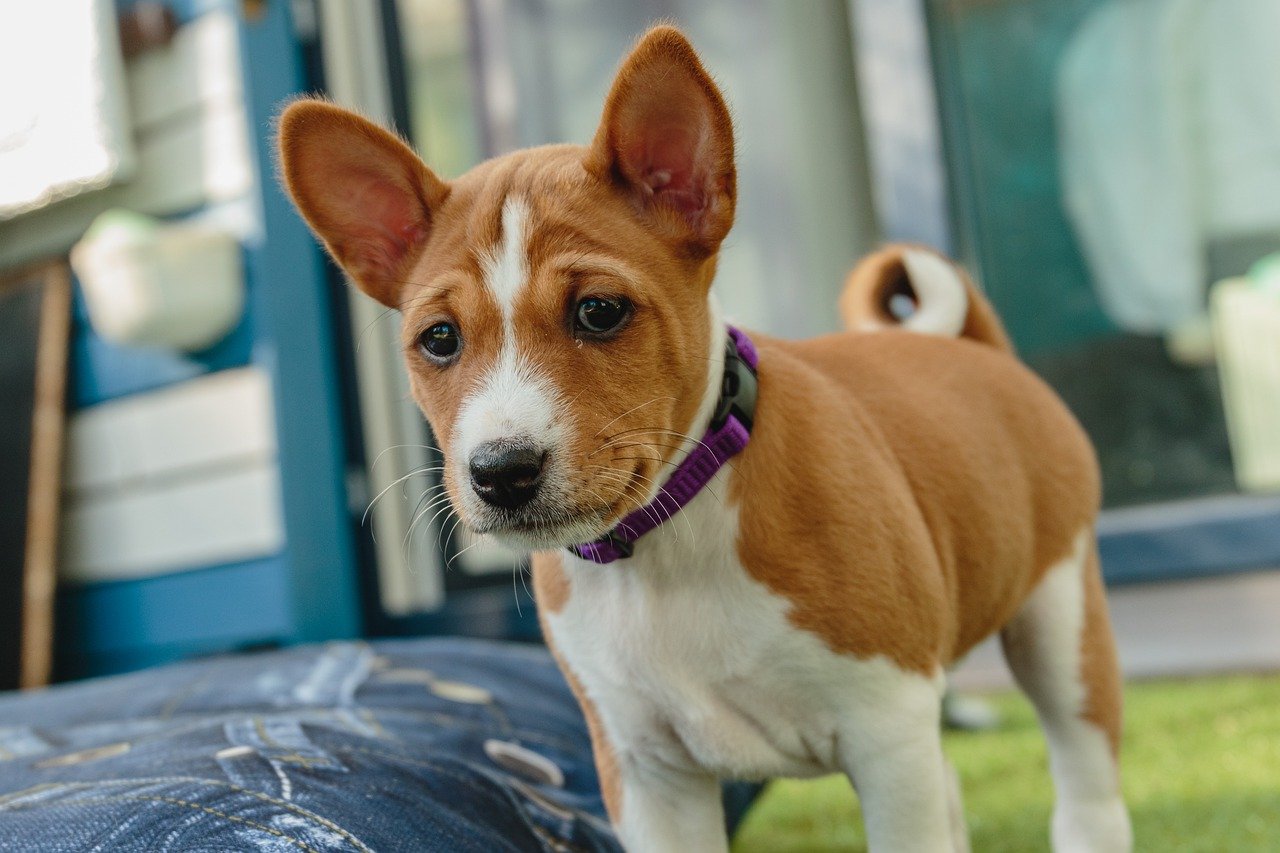
2. Rhodesian Ridgeback
The Rhodesian Ridgeback, originally bred in Southern Africa, is renowned for its distinctive “ridge” of hair running along its back in the opposite direction to the rest of its coat. This powerful and muscular breed was developed in the 16th century by crossing dogs brought by European colonizers with the semi-domesticated, ridged hunting dogs of the Khoikhoi people. Ridgebacks were originally used for hunting large game, including lions, earning them the nickname “African Lion Hound.” They are known for their bravery, strong will, and loyalty to their family. Despite their fierce reputation, Rhodesian Ridgebacks are affectionate with their owners and make excellent family pets. Their ability to withstand both hot and cold temperatures, combined with a low-maintenance coat and an adaptable nature, makes them well-suited to various environments, embodying the resilience and diversity of African dog breeds.
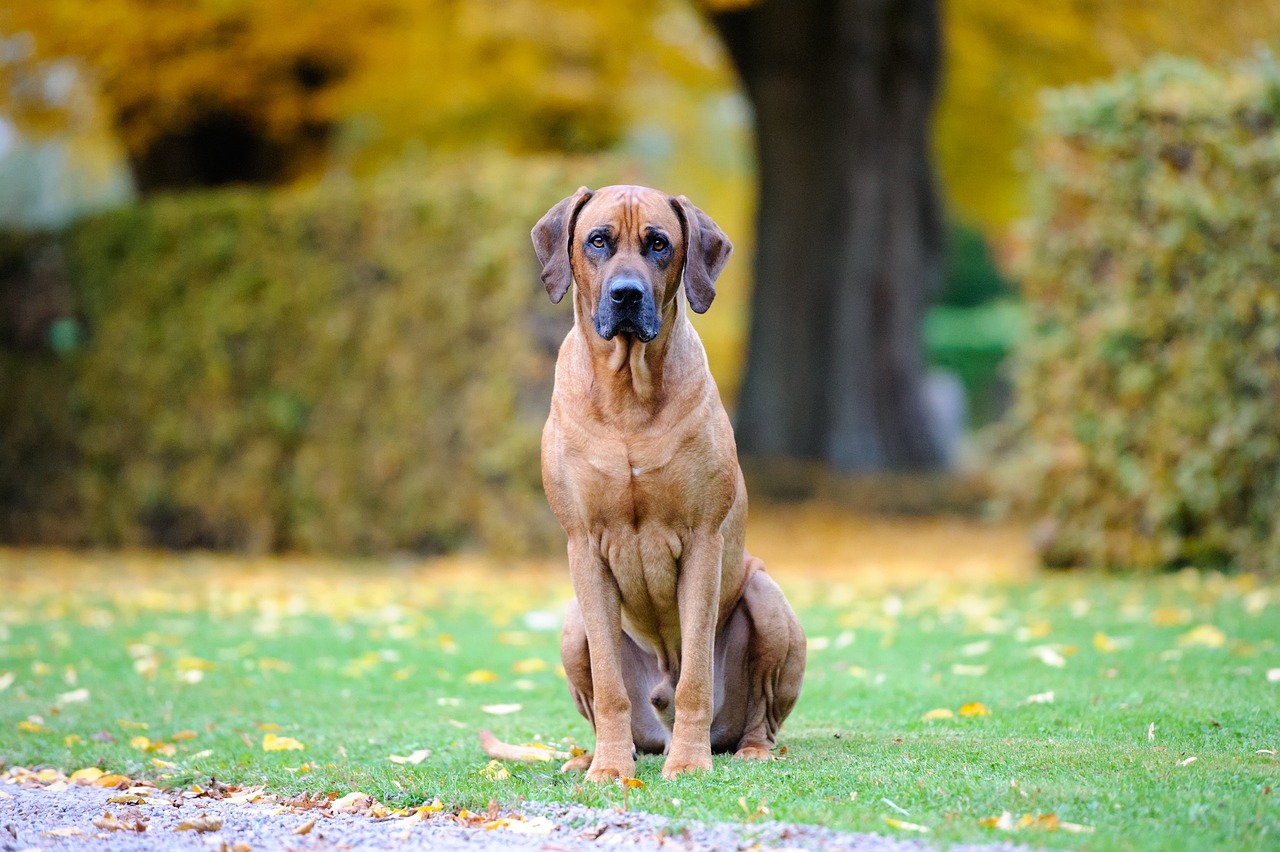
3. Africanis
The Africanis is one of South Africa’s indigenous dogs, deeply rooted in the continent’s history and often associated with the rural communities of Southern Africa. This breed is not defined by its appearance, which can vary widely, but rather by its adaptation to the African environment and its way of life. Africanis dogs are known for their hardiness, loyalty, and protective instincts. They have evolved over centuries to be highly resilient to local diseases and thrive in harsh conditions without much need for specialized care. As natural guardians of their homes and companions to their families, they exhibit a strong sense of territory and a gentle demeanor towards their human pack. The Africanis is a testament to the natural evolution of dogs alongside humans in Africa, showcasing the symbiotic relationship that has developed over millennia.

4. Coton de Tulear
The Coton de Tulear, originating from Madagascar, is named after the city of Tulear (now Toliara) and its cotton-like coat. Despite its small size, this breed is sturdy and adaptable, traits that have allowed it to thrive on the island. The Coton de Tulear was historically the companion of Malagasy nobles and is known for its cheerful disposition, bright, expressive eyes, and soft, white coat. This breed is highly social, enjoys the company of its human family, and has a clownish side that endears it to many. Its ability to adapt to various living situations, combined with its low exercise requirements, makes the Coton de Tulear a beloved pet in both urban and rural settings. The breed’s history and development in isolation on Madagascar highlight the diverse ecological and cultural influences on dog breeds across Africa.
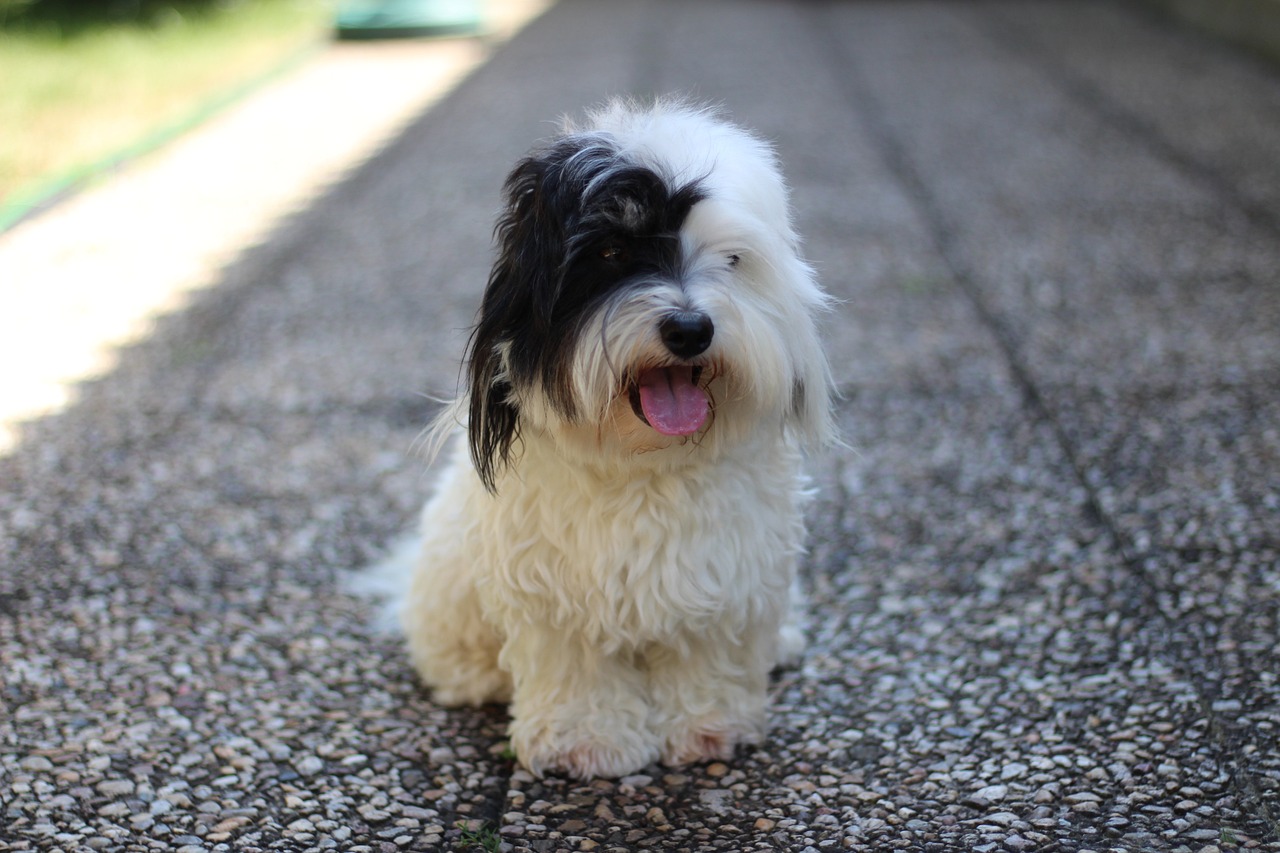
5. Madagascar Coton de Tulear
While the Coton de Tulear has been previously mentioned, the Madagascar variant deserves special attention as the breed originally hails from this island nation. Renowned for its white, fluffy coat that resembles cotton, this small dog is cherished for its lively and affectionate disposition. The Madagascar Coton de Tulear was once considered the royal dog of Madagascar, favored by nobility for its charm and companionship. Today, it is celebrated as a national treasure and a symbol of the country’s unique biodiversity. This breed’s adaptability, intelligence, and friendly nature make it an excellent companion, not just in Madagascar but around the world.
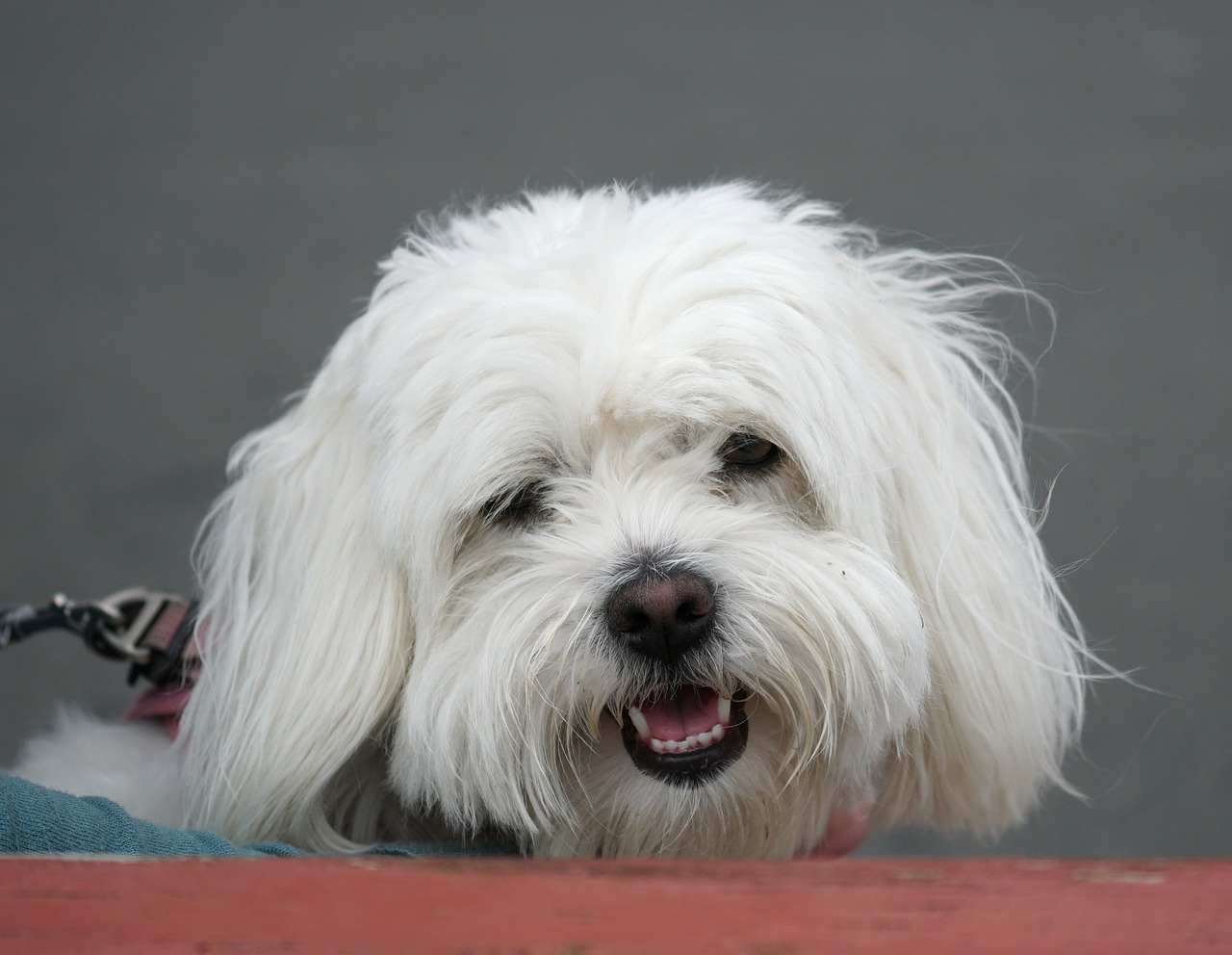
6. African Wild Dog
The African Wild Dog (Lycaon pictus), also known as the Painted Wolf, is not a domestic dog but a wild canid species native to Sub-Saharan Africa. While it does not fit the category of a dog breed in the traditional sense, its mention highlights the diversity of canids on the continent. African Wild Dogs are known for their distinctive mottled coat, large ears, and highly social behavior, living in packs with complex social structures. They are formidable hunters, known for their endurance and cooperative hunting strategies. The inclusion of the African Wild Dog in discussions about Africa’s canines underscores the continent’s rich biodiversity and the evolutionary lineage shared among all canids.

7. Boerboel
The Boerboel, a large, mastiff-type breed, originates from South Africa and is known for its strength, intelligence, and protective instincts. The breed’s name translates to “farmer’s dog” in Afrikaans, reflecting its role as a versatile farm dog capable of guarding, hunting, and working. Boerboels are characterized by their muscular build, confident demeanor, and loyalty to their family. They are highly protective and make excellent guardians for their homes. Despite their intimidating appearance, Boerboels are affectionate with family members and can be gentle with children, making them well-loved family pets as well as formidable protectors. The breed’s resilience and adaptability to the rugged South African landscape underscore the characteristics that define many African dog breeds.
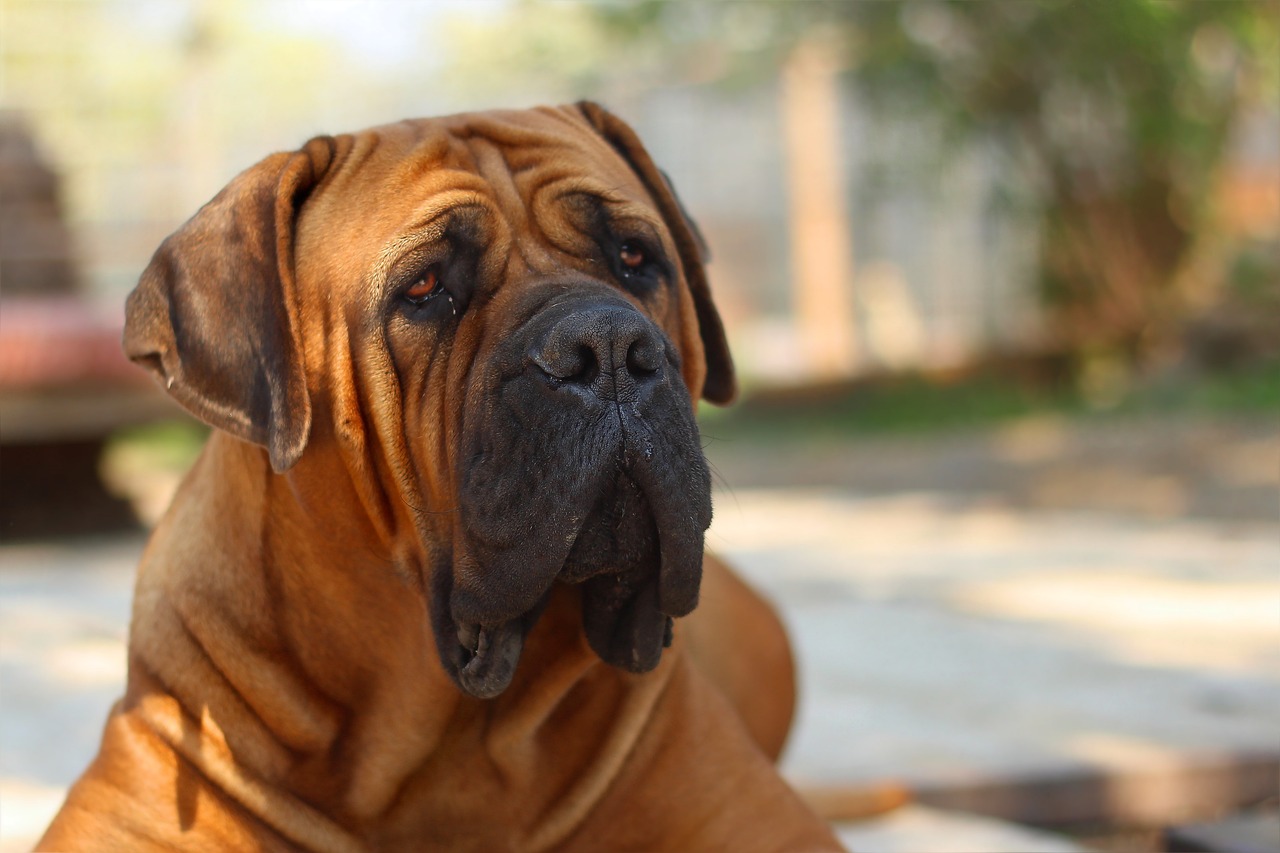
8. Saluki
Though the Saluki is primarily associated with the Middle East, its presence and use in North African hunting traditions merit its inclusion in this list. Known for its incredible speed, endurance, and grace, the Saluki has been valued for centuries as a hunter of gazelles and hares in the vast deserts. This breed’s sleek physique, deep chest, and long legs enable it to cover great distances at high speeds, making it one of the oldest and most efficient hunting dogs. Salukis are known for their gentle and independent nature, forming close bonds with their owners. Their smooth or feathered coat, which can come in various colors and patterns, adds to their elegant appearance. The Saluki’s adaptation to the harsh desert environment and its role in the traditional hunting practices of North Africa highlight the interconnectedness of human and canine lives across the continent.
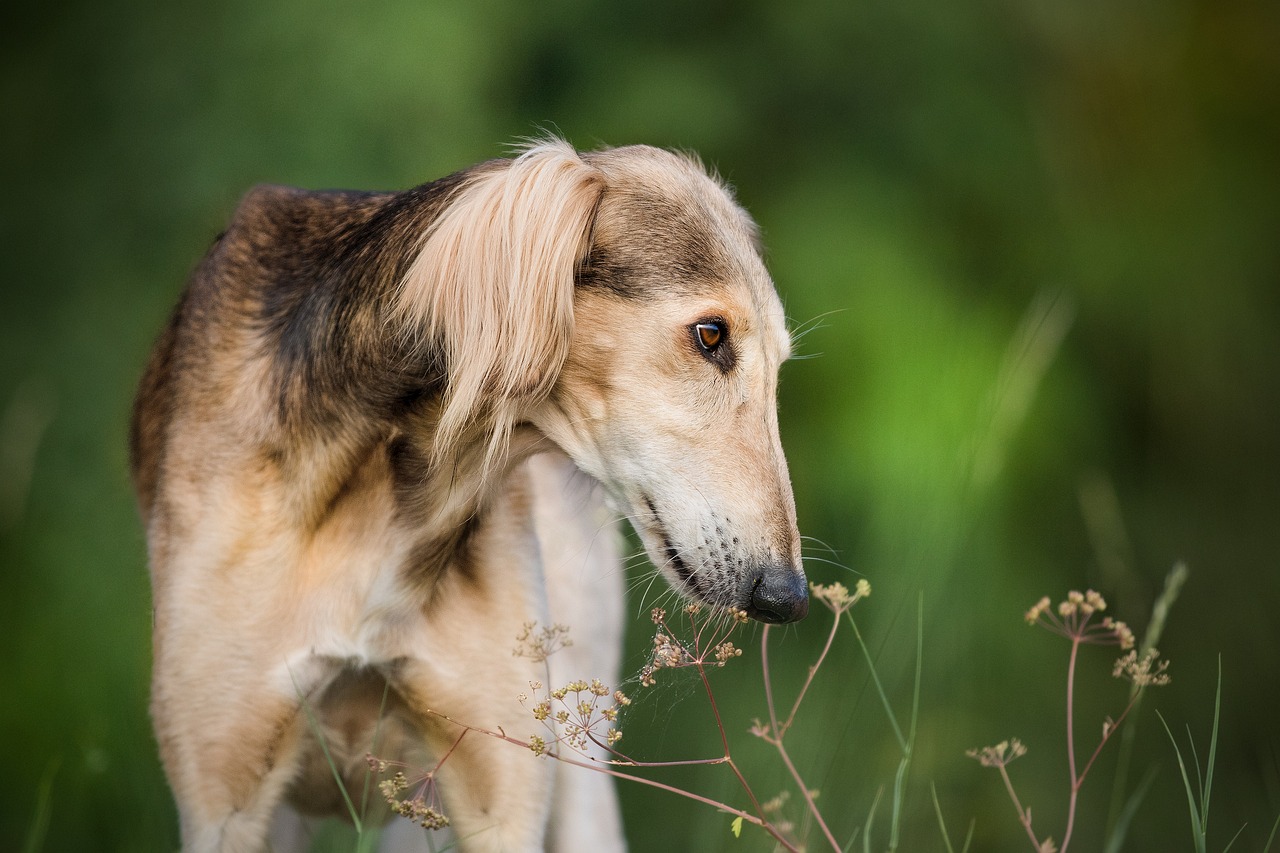
The eight African dog breeds highlighted in this article showcase the continent’s diverse canine heritage, from the ancient and noble Pharaoh Hound to the sturdy and loyal Boerboel. Each breed tells a story of adaptation to the unique environments and cultures of Africa, reflecting the continent’s rich biodiversity and the deep bonds between humans and dogs. These breeds serve various roles, from hunting and guarding to cherished companionship, illustrating the versatility and resilience that are hallmarks of African dog breeds. As we celebrate these breeds, we also recognize the importance of preserving their heritage and ensuring their continued role in the cultural and ecological landscapes of Africa.
 Toledo, United States.
Toledo, United States.